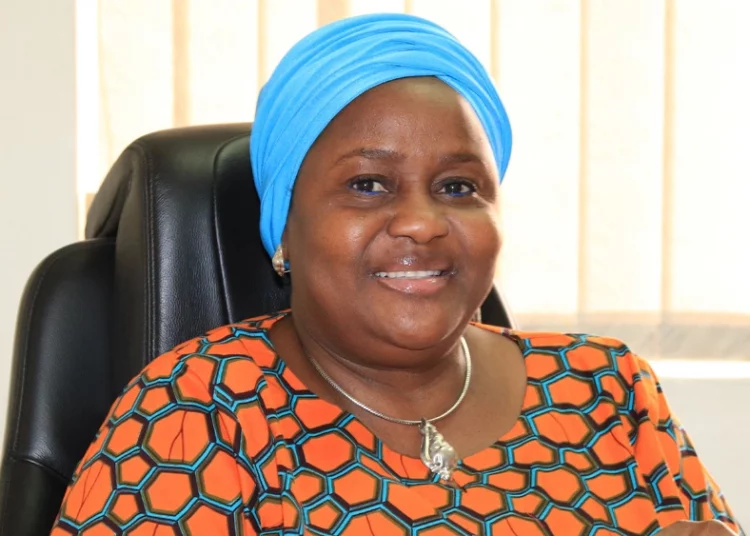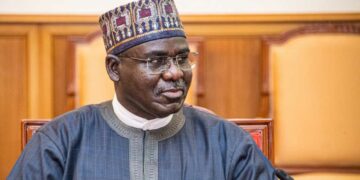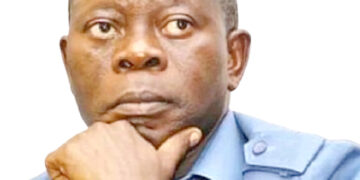Most of the 25 states that have adopted the Contributory Pension Scheme (CPS) still owe about N300 billion pension liabilities, LEADERSHIP can exclusively reveal. However, about five states have taken the lead in the payment of the huge pension liabilities, as a bleak future awaits workers. They are; Ondo, Ekiti, Anambra, Osun and Delta states. Each of the states, investigations showed, is owing over N25 billion in pension liabilities, driven mainly by huge accrued pension rights that were carried on from the Defined Benefits Scheme (DBS) into the new pension scheme.
The situation, analysts say, portends a bleak retirement for the workers a few years down the line, as many retirees are currently suffering the plight of long overdue pensions left unpaid. All the affected states, it was learnt, have subscribed to the new scheme known as Contributory Pension Scheme (CPS).
While the five states are among the 10 states that are remitting both the employee and employer’s monthly contribution, the pension backlog were mainly from accrued pension rights, even though remittances from these states may not have been consistent. Although about 25 states in the country have already domesticated the CPS in their respective state laws, investigations revealed that only 10 of them had been remitting both the employer and employees’ monthly contribution, which is a cumulative of 18 percent of each worker’s monthly salary. This, however, leaves the remaining 15 states battling pension liabilities.
Data from the National Pension Commission (PenCom) indicated that though all the states have subscribed to the Contributory Pension Scheme (CPS), and 25 states have already domesticated the CPS in their respective state laws, only 10 states, including the five states already mentioned are remitting both the employee and employer’s monthly contribution, which is a cumulative of 18 percent of each worker’s monthly salary.
LEADERSHIP findings however revealed that the states were owing huge pension backlog mainly from accrued pension rights of the old scheme that were not being remitted. Findings further revealed that the body language of the governors of these states to payment of the huge accrued rights is not positive, a development that has dimmed the hope of workers to have a bright and successful retirement. Data from PenCom also revealed that as of the end of June, 2021, five states were operating Contributory Defined Benefits Scheme (CDBS), seven states were at the bill stage of passing the new pension scheme into law, while Kano and Rivers States only remit employees’ portion of the monthly contributions.
Stakeholders have noted that while the new pension scheme has been very effective in the private sector, the compliance level in the public sector is not encouraging, with state governments as the major culprits. The challenge with the Pension Reforms Act (PRA) 2014 is that states are at liberty to domesticate it or not since they are not compelled to adopt it. Even when it is domesticated, there is no defined sanction for defaulting state governments, leading to their reluctance to comply.
This, according to investigation, is currently affecting retirees from the concerned states whose Retirement Savings Accounts (RSAs) are either not credited at all or are waiting on the government to fulfill its liabilities before they can have access to their own pension contributions at retirement. Speaking in an exclusive interview with LEADERSHIP, the director, Centre for Pension Right Advocacy (CPRA), Ivor Takor, expressed dismay that state governments were not giving the welfare of retirees the urgent attention it required.
According to him, most state governments have the capacity to pay the liabilities but they have shifted their priorities to other areas that can score them quick political points. He also said most states still favour the old pension scheme over the new pension scheme, and to this end are reluctant to fully commit to the CPS. Takor charged state governments to perform their civic responsibilities by honouring pension obligations of their employees.
“Some states are yet to pass pension bill into law in their respective houses of assembly, 17 years after the PRA 2004 (now PRA 2014) came into effect. That is irresponsible on the part of those states. And PenCom is powerless in this regard because of the way the regulation is structured. So, they can only persuade them to meet their obligations,” he stressed.
He described as unfortunate a situation where some state governors left office and made some segmented pension laws that only cover them and their office holders, enabling them to draw massively from the purse of the state in the name of pension to build houses and cars, but refused to make laws for the state workers. He charged workers’ unions at the state level to protest this maltreatment, noting that as unions are requesting for salary increase, so also should they request for payment of pension entitlements and liabilities by state governors.
“This is an issue of the union and workers’ unions at state level must rise up to the occasion by forcing these governors to show commitment towards workers’ welfare, including pension. This is very germane to ensure that workers have a buffer to fall back on at retirement. It is the right of every worker, and the union should be able to fight this battle,” he pointed out. Speaking on the development, PenCom spokesperson, Peter Aghahowa, said the regulator was embarking on a series of awareness in states to ensure full compliance, disclosing that some states have actually increased compliance.
Stating that the pension regulator can only persuade, he added that the pension regulation did not arm PenCom to prosecute the states. He however promised that the commission will continue to educate, sensitise and educate states on the need to honour pension obligations of their workers. Similarly, a former director general of Lagos State Pension Commission (LASPEC), Mrs Folashade Onanuga, said the promise of DBS is more juicy and enticing to civil servants and politicians than the CPS. She noted that under DBS, the government contributes the total pension, but under CPS, the employer contributes 10 per cent, while the employee contributes 8 percent of a worker’s monthly salary.
She however challenged PenCom to revisit the percentage of lump sum under the new scheme to make it attractive to contributors, even as she implored states to prioritise pension of workers, saying that is a saving scheme that will be beneficial for them at retirement.
At a recent seminar in Lagos where she delivered a theme paper, she noted apart from the regulatory awareness, there must be fiscal commitment and consciousness, especially from state governments to ensure prompt compliance to the new pension scheme. “Even though there are a lot of things contending with state funds, I believe if there is a commitment towards pension, we will always find a way to pay it,” she stressed.
She charged pension fund operators to increase awareness at the state level to ensure that governments enforce the PRA 2014 in their respective states. On the apathy of CPS in the public sector, the chairman/ CEO, Achor Actuarial Services Limited, Dr Pius Apere, said public service employees already in the CPS feel aggrieved and short-changed compared to their counterparts who are exempted from the CPS.





